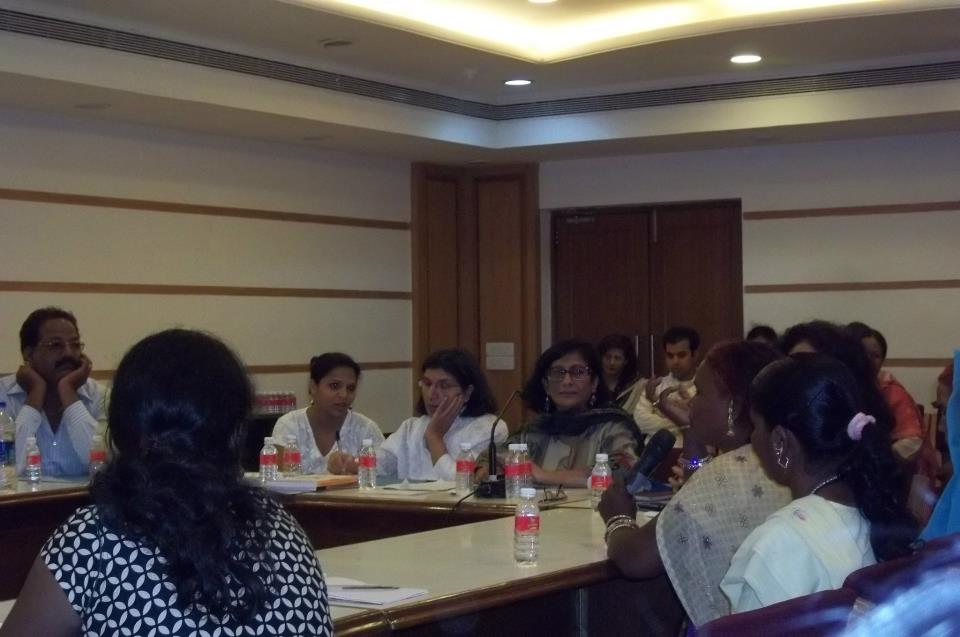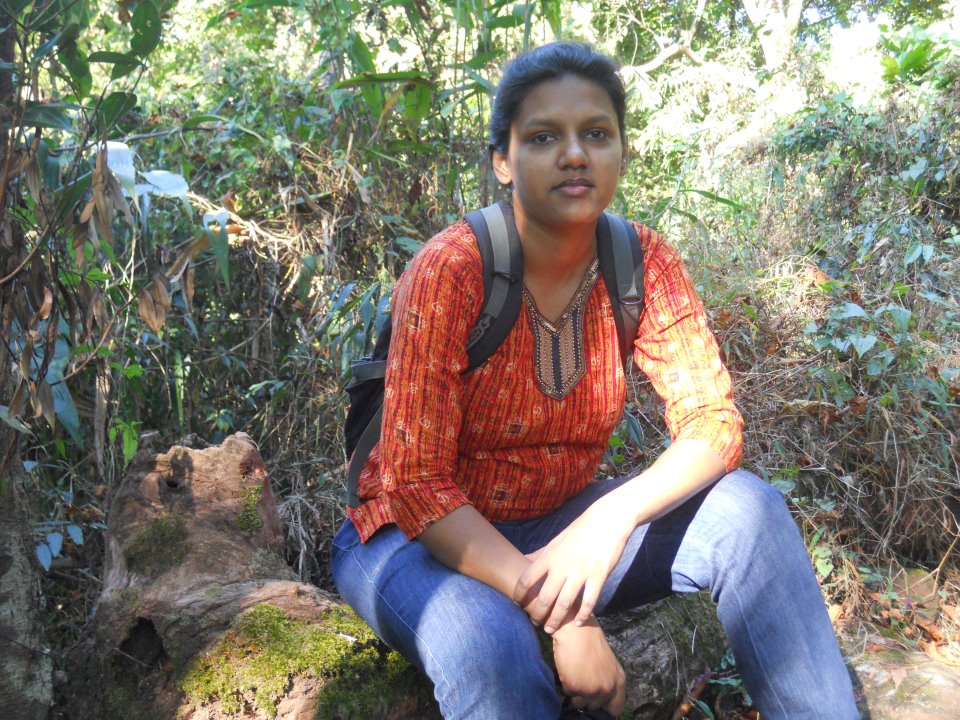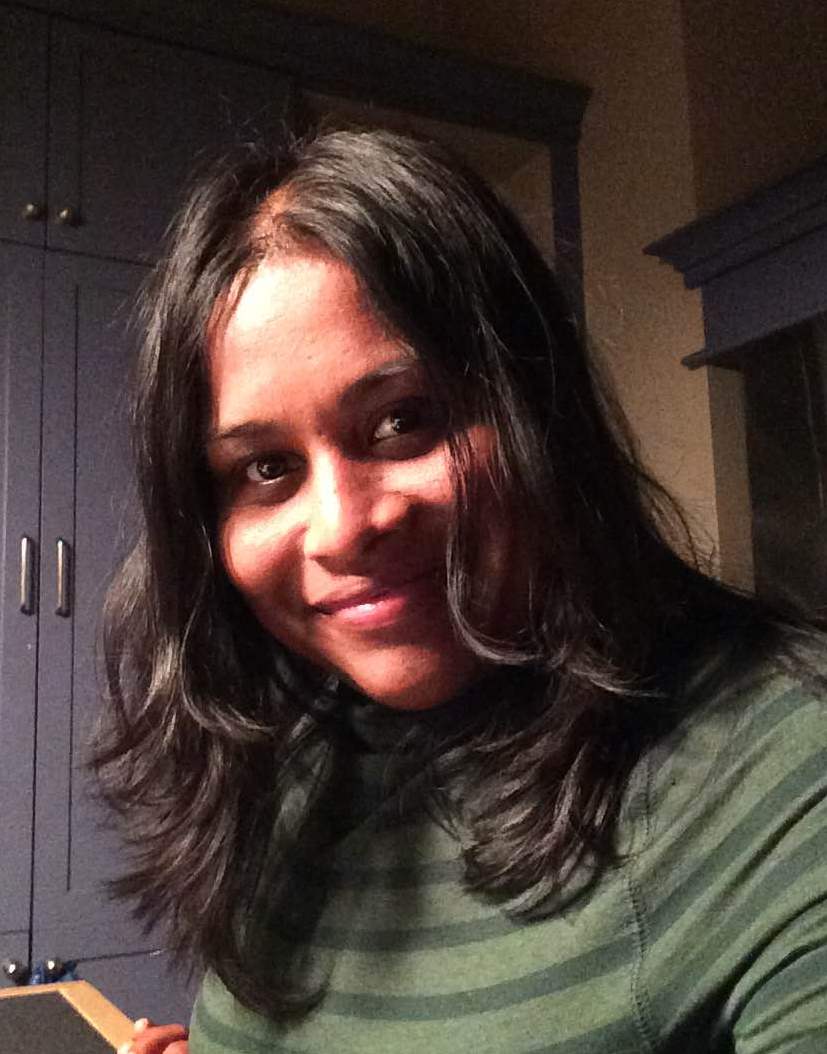Swati Kamble & Sagar Zende
In this report submitted to the UN Special Rapporteur on Violence against Women, Swati and Sagar of IADWR emphasize the intersectional issues of caste, gender, class and religion which render specific groups of women (SC, ST, NT, DNT) extremely vulnerable to violence, they elaborate on this with specific reference to the Maharashtra Women Policy Draft 2013.
To,
Special Rapporteur on Violence against Women
Sub:Maharashtra Women Policy Draft is exclusionary towards Dalits, Tribal, NT and DNT women.
Respected Madam Special Rapporteur on Violence against Women, Its causes and consequences, we the ‘INTERNATIONAL ALLIANCE FOR DALIT WOMEN’S RIGHTS’ (IADWR) a Non-Governmental Organisation (NGO) wish to bring to your notice the issues pertaining to the historically oppressed social groups, the Dalits, the „former lowest castes and constitutionally termed as Scheduled Castes (SC), Scheduled Tribe (ST), Nomadic Tribe (NT) and De-notified Tribe (DNT) women in India. Dalit SC, ST, NT-DNT constitute around 5 percent of the world’s population and are the most discriminated minorities. Dalit suffer severe forms of humiliation, stigmatization and exclusion even today in urban and rural spaces alike. Dalit women, Dalit within Dalit, are marginalized at multiple grounds, as Dalit, as women and as poor. Dalit, Tribal, NT and DNT women number 150 million or approximately 30 percent of the total female population and 15 percent of the total Indian population. They make the majority of unorganized laborer in urban India and landless laborers in rural. Most of the work Dalit, Tribal, NT and DNT women do goes unpaid or underpaid as they serve the informal service sector without social security. Dalit, Tribal, NT and DNT women face insecurity and sexual harassment at workplace due to the nature of the work as domestic workers, waste pickers, manual scavengers and landless laborers. Forced prostitution through religious sanctity known as Devdasi system is the most repelling exemplary of Dalit women‟s sexual and economic oppression which continues even today. Such Systemic violence is embedded in the structure of the dominant society, which does not acknowledge the basic human rights of Dalit women.
The Intersectionality of Caste, Class and Patriarchy need to be critically understood in ensuring Human rights of Dalit, Tribal, NT and DNT women. The founding father of constitution of India and the champion of Dalit and Minority Rights, Dr. B.R. Ambedkar, said, “I measure the progress of a community by the degree of progress which women have achieved”. On this note, we would like to urge the Special Rapporteur on Violence against Women to critically look into the overall progress of Dalit Tribal, NT and DNT women and violation of their human rights. We would like to urge the International community, represented by the United Nations (UN), the Human Rights Council to collectively intervene and prioritize the overall development of Dalit women by making effective recommendations to the Indian government for implementing inclusive policies.
We specifically want to bring your attention to the Maharashtra Women Policy Draft (MWPD) which since its release on 8th March 2013 is boasted to be one of the most inclusionary and progressive drafts. However, IADWR feels differently. The research and advocacy team members of IADWR have analyzed the MWPD. One major drawback the policy draft has is that it disregards issues of diversity, historical injustice on oppressed social groups and intersectionality1. The historically oppressed social groups, the Dalits, the “former lowest castes” and constitutionally termed as Scheduled Castes (SC), Scheduled Tribe (ST), Nomadic Tribe (NT) and De-notified Tribe (DNT) women are sidelined if not fully ignored. We are very surprised that in the draft the issues and concerns of Dalit women are raised in a very brief and insufficient manner so much so that the policy draft appears caste-blind and therefore exclusionary. This exclusion is a violation of constitutional rights that the State is obligated to ensure to all its citizens and especially the oppressed groups. IADWR research and advocacy team has made necessary inputs and recommendations to make the draft inclusive towards these socially oppressed groups, SC, ST, NT and DNT.
We strongly believe that all the women irrespective of their caste, class, region and religion should have equal status and opportunities. Special attentions and provisions should be given to every socio-economically disadvantaged group for them to enjoy equal rights as an Indian citizen. The basic principle for formulating any policy is inclusion. Issues of SC, ST and NTDNT should therefore cut across all the categories mentioned in the policy draft.
Our Major Recommendations made to Women and Child Development Department, Government of Maharashtra:
First and foremost, we strongly recommend that one additional objective should be added and clearly defined, which should focus on inclusiveness and overall development of SC, ST and NT-DNT women.
We propose, the revision of Objective 5 which is very vague. Instead of using „women from all sectors (Kshetra) and levels (Sthar)’ the wording should be:
Women from all caste, class, region and religion should equally be included in planning and decision making thereby consciously protecting and promoting interest of all the women.
Equitable Justice:
We strongly recommend that the government of Maharashtra must commit to protection and overall development of SC, ST, NT and DNT women and mention this in the policy. SC, ST, NT and DNT women should have proportional share in all the provisions made in the draft. The policy should ensure equitable share in health facilities, education, employment opportunities, skill development, and trade and industry. Special attention must be given to the housing rights, water and sanitation issues of women in urban slums, especially SC, ST, NT and DNT women.
Economical Security, Budgetary provisions and Development:
There is a provision of allocating 10% of overall budget of Government of Maharashtra for Gender budgeting. We propose that the percentage should be increased gradually and timeframe should be mentioned in the present policy draft. Further we propose, like the SC/ST Sub-plans, from Gender Budget there should be proportional share allocated to SC, ST, NT and DNT women.
We strongly recommend that like Mahila Arthik Vikas Mahamandal (MAVIM) and Adivasi (Arthik) Vikas Mahamandal proposed in the present policy draft, there should be Scheduled Castes Mahila Arthik Vikas Mahamandal to improve socio-economic status of SC women and to uplift them to the level of socio-economically developed women.
Employment and Trade and Business:
We strongly recommend that the employment backlog (vacant positions) of women of socioeconomically oppressed groups (SC, ST, NT and DNT) should be filled as soon as the policy is enforced. It must be ensured that no backlog remains as it is a violation of fundamental rights.
We strongly recommend proportional representation and equal opportunities to SC, ST, NT and DNT women in all the measures taken and provisions made to encourage women to enter into trade and businesses.
Water and Sanitation
It is mentioned that at the village level 50% women should participate in the planning of safe drinking water. We Demand proportional representation of SC, ST, NT and DNT women.
Safety and Security
In the cases of sexual atrocities such as humiliating women by forcefully parading them naked specifically SC and ST women, who are the prime victims of such caste atrocities committed by dominant castes groups we strongly recommend that all the accomplices must be held collectively responsible, stringent action must be taken against all. The cases must be registered as non-bailable offences and must be run on fast track courts. The government should take complete responsibility of proper rehabilitation of the victims. Along with government rehabilitation measures, in case the culprits have runaway their property must be seized and must be used for rehabilitation of the victims. Additionally we recommend that persons convicted of caste atrocities against Dalit and Tribal women should not be allowed to run for election and he/she must not assume any public position.
We strongly recommend that women victims of molestation, sexual abuse, rape, domestic violence and caste atrocities should be able to lodge compliant/FIR over the phone if they are not in a position to come to the police station/ or if they do not wish to visit police station fearing humiliation. Women who visit the police station to lodge complaint should be treated in a sensitive manner. Both male and female police should be therefore taught human rights, communication skills and counseling. They should also take responsibility to drop the woman safely to her home in case of late hours (After 8 PM in urban areas and after 5.30 in Rural and Tribal areas). Any humiliation from police should be taken seriously and Women and Human Rights commissions should take necessary action against the police personnel. This will be especially helpful to ensure fair treatment towards victim women and will motivate victim women to file complaints.
Land Rights, Agriculture and access to credit and subsidies
We welcome the provision of co-ownership of husband and wife on immovable property such as House and Land for political empowerment of women. We are particularly concerned of landless and homeless poor women, and SC, ST, NT and DNT women over-represent this category. Therefore we recommend that like ‘Dadasaheb Gaikwad Sabalikaran and Swabhiman Scheme’, SC, ST, NT and DNT landless women must get 2 Acres irrigated or 4 Acres non-irrigated land entitlement.
In this policy draft “women farmer” category is used but it is not clearly defined. Their population percentage is not enumerated. This term is ambiguous due to which land owning dominant castes will misuse the benefits in the name of women farmers. We strongly urge that the definition and population percentage of this category should be clearly stated. Further we suggest that the clarification for the distinction of Agricultural and Rural areas must be given.
We strongly recommend that along with women farmers, SC, ST, NT and DNT landless women laborers should be considered for 100% loan facility and market training to start their own business activity.
We strongly recommend various credit provisions mentioned such as a) providing capital to women‟s SHGs b) long term and short term loan from all levels of banks c) study tours similar to student exchange and d) 50% reservation for women on various Agricultural Produce Marketing Committees (APMC) should also be provided proportionally to SC, ST, NT and DNT women‟s SHGs.
Religious Rights
Additionally we recommend that like the Hindu and Muslim personal law, there should be a separate personal law for Buddhist women. This personal law should ensure equality and justice to Buddhist women.
Political Rights
The most important point missed out in the policy draft is the long standing 50% political reservation to women in Maharashtra Legislative Assembly and Council and within it as per population proportion reservation to SC, ST, NT and DNT women. This denial of constitutional right to political participation is of serious concern. Therefore we recommend that political reservation for women and within it proportional reservation for SC, ST, NT and DNT women should be included in this policy document. Further we recommend strong measures should be taken to pass the women‟s bill at the state level.
Urban women
We propose that the subchapter on Urban women should be revised. There must be proportional provisions and schemes of direct benefits and financial allocations to urban poor, separated, widowed, SC, ST, NT and DNT women as generously mentioned for women farmers in agricultural/Rural areas.
Devdasi women
Devadasi Tradition is a heinous crime against humanity. And therefore we strongly recommend that all forms of Devdasi tradition should be abolished and government should take full responsibility to strongly implement law. Further if the practice continues, the collector and Superintendent of Police should be held responsible and strong actions must be taken against him/her for failing in their duty.
Sexually exploited women
We strongly recommend that sex trade should be completely abolished from state of Maharashtra as well as India. It is a violation of human rights of girls and women involved in sex trade therefore they should be properly rehabilitated and dignified livelihood must be ensured to them. The government should take the responsibility to abolish sex trade. There must not be any justification to continue this inhuman practice.
Monitoring and Supervision
We recommend that the reporting mechanism mentioned should have time frame. We propose that the progress report of Women and Child Development Department should be presented to the government of Maharashtra at least thrice every year before each assembly session.
~~
1 “Intersectionality is a theory and a paradigm for sociological and cultural studies that conceptualize the cultural and social patterns of oppression as integrating race, gender, class, ethnicity, sexual orientation and disability”(Pantea, 2009: 37). This theory dates back to the late 20th century north American Black Feminist Movement. The term intersectionality was first coined by black feminist write Kimberley Crenshaw and refers to various social divisions that position groups or individuals in advantageous or disadvantageous situations, depending on the interrelationships of differences such as gender, race, caste, class and ethnicity. The Intersectionality perspective emerged from a context of intersections between feminist theories, and, in particular, postcolonial theory, and black feminist theory (Kamble, 2011, 22). Lykke defines Intersectionality as a tool to analyze how socio-cultural hierarchies and power differentials, which produce in/exclusion around discursively and institutionally, constructed socio-cultural categories such as gender, ethnicity, race class, sexuality, age/generation, nationality etc. interact (Lykke, 2005, 2).
Ms. Swati M. Kamble,
President, International Alliance for Dalit Women‟s
swatika2005@gmail.com
Mr. Sagar C. Zende
Human Rights Defender & Rights Policy Analyst (9969770886)
socialsagar@gmail.com


